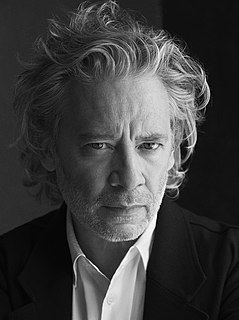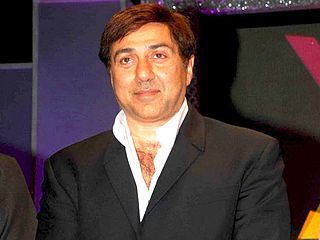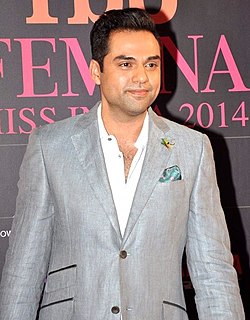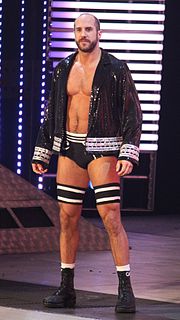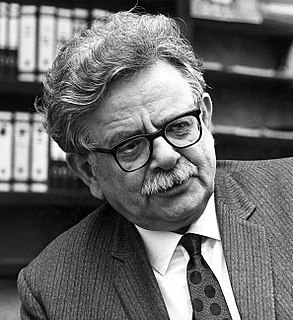A Quote by Mano Khalil
Sitting in the darkness of the cinema, I got to see another world. This imaginary world was a refuge for many of us. Of course, the films were controlled and censored by the regime. But I still thought, around this time, that maybe making films would be good for me. I thought of expressing myself through this medium, and of doing something for the Kurds. The options were clear: either I'd work as a lawyer under the Baath regime or make movies independently.
Quote Topics
Another
Another World
Around
Be Good
Censored
Cinema
Clear
Controlled
Course
Darkness
Doing
Either
Expressing
Films
Good
Got
Imaginary
Imaginary World
Independently
Kurds
Lawyer
Make
Making
Many
Maybe
Me
Medium
Movies
Myself
Options
Refuge
Regime
See
Sitting
Sitting In The Dark
Something
Still
Thought
Through
Time
Us
Were
Work
World
Would
Would Be
Related Quotes
Richard Donner made great movies. Seminal movies. The Academy, though, and we have to be careful here, should recognize popular films. Popular films are what make it all work. There was a time when popular movies were commercial movies, and they were good movies, and they had to be good movies. There was no segregation between good independent films and popular movies.
When I published my first work, I thought I would never be able to go back to Lebanon. I thought they'd arrest me at the airport. I thought I would change literature as we know it. I thought I'd have men lining up at my door wanting to be my boyfriend. But later I discovered that no one read the book. Or no one cared. Right now, I have only one book translated into Arabic. Someday, maybe if the Syrian regime falls, there will be others, but probably another regime will come into power and it will employ just as much censorship.
My production company wasn't doing well, so we were not producing films. Over a period of time, we have realized that we are going to produce our own films and make cinema that we like. We've got so much in-house talent, and my kids are going to be coming, so we all decided that we are going to be in films and cinema.
My dad was an actor, and my older sister is an actress, and so I very much remember thinking, "Well, of course I'll do that as well." But I never imagined myself as an actor who would be in films. I always only thought of myself being in a play or a musical and maybe the odd episode of [U.K. '80s TV drama] Casualty. My backup plan was to do something with children, to start a nursery school or work with underprivileged kids. And I still dream of maybe doing that in some way. I've always got children in my house, always.
There's something that happens where you go, if you're lucky, goodness me, from film to another film to another film. And you can sort of feel that if you step off that treadmill, it might all go horribly wrong and you might never be employed again, you know. And I suddenly thought that that's not necessarily the case. And I also thought we make drama as actors about people in the world and that if you are on that treadmill, you start making films about other films.
I'm very pessimistic about adaptations from one medium to another. I've got a very kind of primitive, Puritan view of it. I tend to think that if something was derived for one medium, then there's no real immediate reason to think that it's necessarily going to be as good or better if adapted into another one. There have been very good stage plays that have made some very good films. But there are not so many differences between the theater and the cinema as there are between the cinema and, say, reading a book or reading a comic.
I'm happy that my films were discovered by chance by foreign film festivals. That makes me realise more that there is a world outside Japan too. For me, it's an occasion to meet many people and to experience directly the response of international audiences to my films. But for me as a director, my attitude towards making films hasn't changed with the fame. I feel it's not good to change as a person anyway
I doubt that there are many screenplays of movies that either of us have seen over the past 10 years that were first drafts, or were the work of purely one person. In my world, the actors and the director are all made of paper, and they do exactly what I say. I feel much more in control of the finished work. I feel like the statement that I'm making - even though it's in a medium by no means as glamorous or as widely recognized as film - is at least the statement that I wanted to make. That's a lot more important to me than the allure of working for Hollywood.
I didn't see films when I was young. I was stupid and naïve. Maybe I wouldn't have made films if I had seen lots of others; maybe it would have stopped me. I started totally free and crazy and innocent. Now I've seen many films, and many beautiful films. And I try to keep a certain level of quality of my films. I don't do commercials, I don't do films pre-prepared by other people, I don't do star system. So I do my own little thing.
I went to film school when I was 17, and of course when you are very young you think that there is nothing else in the world except film. At some point I started getting hungry to see something else. For five years I didn't make any films, I was traveling around the world, writing for newspapers, working in theater, working in opera, I thought I would never return to film.

